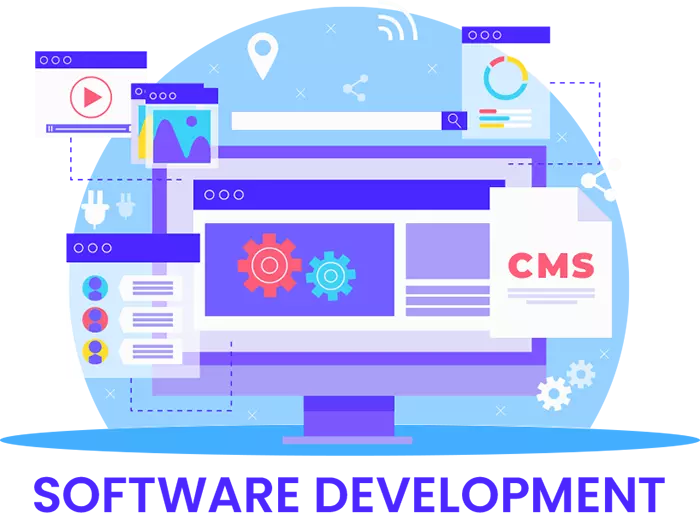
Usually, system software includes an operating system and some fundamental utilities such as disk formatters, file managers, display managers, text editors, etc. Application software is used to perform specific tasks other than just running the system. It may consist of a single program, such as an image viewer; a spreadsheet or text processing system; Microsoft Office which consists of a closely integrated word processor, spreadsheet, database, etc.
Software is created with programming languages and related utilities, which may come in several of the above forms: single programs like script interpreters, packages containing a compiler, linker, and other tools; and large that include editors, debuggers, and other tools for multiple languages

Below are the imortant steps of software development process lifecycle-

Extracting the requirements of the desired software product is the first task in creating it. While customers probably believe they know what the software is to do, it may require skill and experience in software engineering to recognize incomplete, ambiguous or contradictory requirements.

Specification is the task of precisely describing the software to be written, in a mathematically rigorous way. In practice, most successful specifications are written to understand and fine-tune applications that were already well-developed, although safety-critical software systems are often carefully specified prior to application development. Specifications are most important for external interfaces that must remain stable.

The architecture of a software system refers to an abstract representation of that system. Architecture is concerned with making sure the software system will meet the requirements of the product, as well as ensuring that future requirements can be addressed.

Reducing a design to code may be the most obvious part of the software engineering job, but it is not necessarily the largest portion.

Testing of parts of software, especially where code by two different engineers must work together, falls to the software engineer.

An important task is documenting the internal design of software for the purpose of future maintenance and enhancement.

A large percentage of software projects fail because the developers fail to realize that it doesn’t matter how much time and planning a development team puts into creating software if nobody in an organization ends up using it. People are occasionally resistant to change and avoid venturing into an unfamiliar area, so as a part of the deployment phase, its very important to have training classes for the most enthusiastic software users (build excitement and confidence), shifting the training towards the neutral users intermixed with the avid supporters, and finally incorporate the rest of the organization into adopting the new software. Users will have lots of questions and software problems which leads to the next phase of software.

Maintaining and enhancing software to cope with newly discovered problems or new requirements can take far more time than the initial development of the software. Not only may it be necessary to add code that does not fit the original design but just determining how software works at some point after it is completed may require significant effort by a software engineer. About 60% of all software engineering work is maintenance, but this statistic can be misleading. A small part of that is fixing bugs. Most maintenance is extending systems to do new things, which in many ways can be considered new work.

We have very much experienced Team to perform operations related to managed software development, independent software testing and professional services span commercial software products, SaaS solutions and custom applications across enterprise, cloud, mobile and web development. We understand client needs and than architect and design software satisfying their requirements in best possible manner.

Our managed technology consulting & professional services assist your business transformation initiatives with planning and implementation of new and creative ideas which are best to be implemented and right selection/suggestion of technologies for you.

Our managed outsourcing services experts help clients maintain focus on their core operations while we manage their offshore software outsourcing, application management, application outsourcing and testing outsourcing needs. Our industry services provide solutions to industry specific challenges with specialized experience and knowhow. Our industry consultants possess experience in Technology, Healthcare, Financial Services, Life Sciences and Energy & Utilities Industries.
LEAVE A Query for Software expert Consultation
